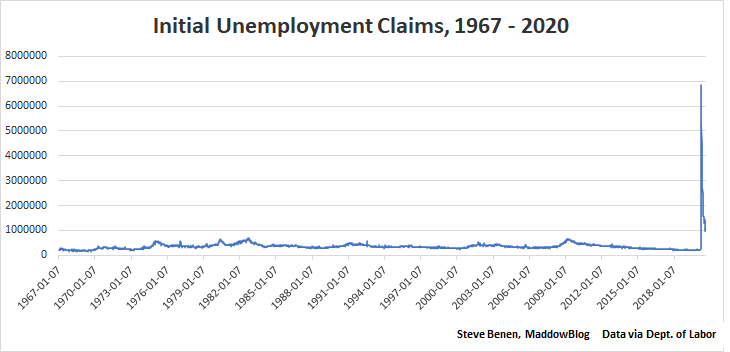
For 20 consecutive weeks, at least 1 million Americans filed for unemployment benefits — a total vastly higher than anything the nation saw at the height of the Great Recession. Last week, however, brought some heartening news, as initial jobless claims fell below the seven-digit threshold for the first time since March.
As the latest report from the Labor Department helps prove, the good news didn’t last long.
In the week ending August 15, the advance figure for seasonally adjusted initial claims was 1,106,000, an increase of 135,000 from the previous week’s revised level. The previous week’s level was revised up by 8,000 from 963,000 to 971,000. The 4-week moving average was 1,175,750, a decrease of 79,000 from the previous week’s revised average.
The cumulative effects continue to matter: these 1.1 million Americans who’ve just filed for jobless benefits are in addition to the totals from the last several weeks. In other words, we’ve seen than 57 million initial unemployment claims filed since mid-March — a total unlike anything the country has seen in modern times.
A reader recently asked me a good question about this statistic: if 57 million Americans have sought jobless benefits, why do most reports indicate that roughly 31 million Americans are out of work? The answer is, many of those who were forced from the workforce after the crisis began in earnest were laid off temporarily, and have since either returned to their new jobs or found new ones. That said, the fact that there are roughly 31 million Americans still looking for a job is a brutal total by any fair standard.














